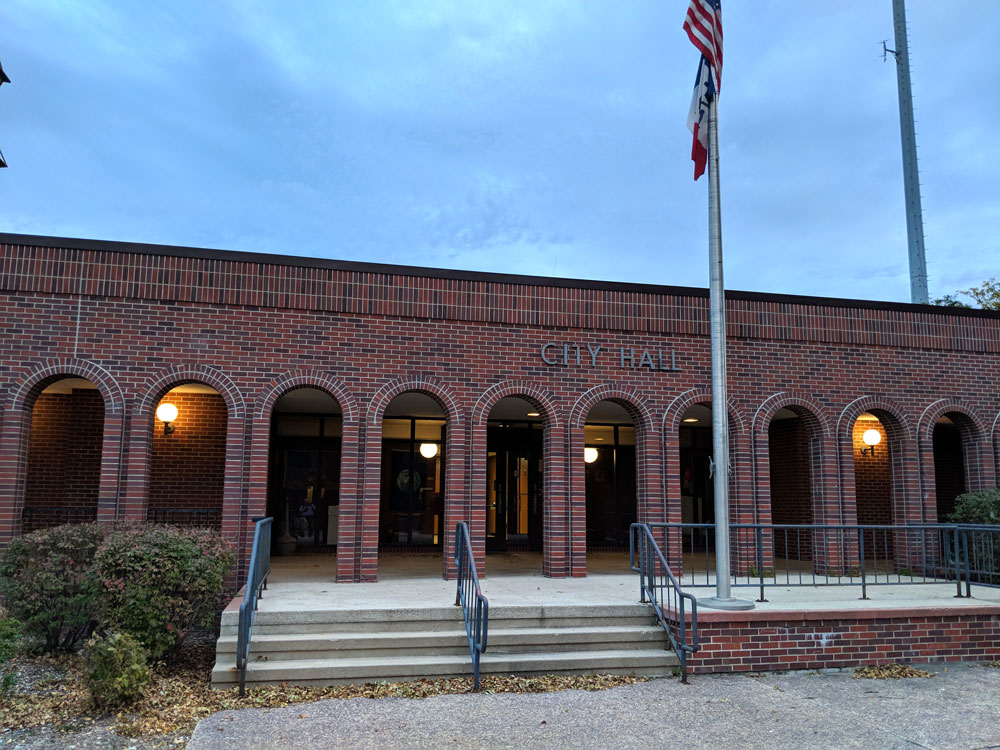Floyd County will see significant property tax hike in new fiscal year
 By Bob Steenson, bsteenson@charlescitypress.com
By Bob Steenson, bsteenson@charlescitypress.com
Floyd County property owners may be in for a bit of a surprise when they open their property tax statements next fall.
Property owners who live in incorporated cities will see their tax rate go up by almost $1.50 per $1,000 of taxable valuation.
 For a home assessed at $100,000, that would mean an increase of about $80 on the taxable portion of the assessment after rollbacks, equalization and other adjustments are applied.
For a home assessed at $100,000, that would mean an increase of about $80 on the taxable portion of the assessment after rollbacks, equalization and other adjustments are applied.
Property owners who live in the rural areas of the county will see their property taxes increase more than $1.68 per $1,000.
The biggest reason for both increases has to do with something that shouldn’t be a surprise — beginning to pay back the money that is being borrowed to build a new county law enforcement center (LEC) and to make updates to the county courthouse.
When voters approved a referendum last May to sell up to $13.5 million in general obligation bonds for the project, they agreed to a property tax increase to pay back the bonds. The referendum passed by an overwhelming 69 percent “yes” to 31 percent “no.”
More than $928,000 will be spent in interest and principal payments on that debt in the next fiscal year.
 Total property tax asking is increasing almost 26 percent, from $6.179 million in the current fiscal year to $7.781 million in the next fiscal year. That’s a total increase of more than $1.6 million.
Total property tax asking is increasing almost 26 percent, from $6.179 million in the current fiscal year to $7.781 million in the next fiscal year. That’s a total increase of more than $1.6 million.
The rest of the tax increase will go largely for a couple of areas.
County Auditor Gloria Carr said that in addition to the debt levy, the top spending increases are a new $250,000 payment to support the Floyd County Medical Center, employee health insurance premium increases and increases in spending in the Sheriff’s Office and Public Health (which include increases in health insurance costs since those two departments have the largest number of employees).
 County supervisors have been working on next fiscal year’s budget since December, having elected officials and department officers come in to present their expense and revenue projections for the new fiscal year, and hearing from more than a dozen outside groups requesting county funding support.
County supervisors have been working on next fiscal year’s budget since December, having elected officials and department officers come in to present their expense and revenue projections for the new fiscal year, and hearing from more than a dozen outside groups requesting county funding support.
A public hearing has been set for 9:15 a.m. Tuesday, March 12, in the supervisors’ boardroom at the courthouse for anyone who has comments or suggestions regarding the proposed budget to provide input.
After that hearing, barring any input from the public that causes supervisors to adjust spending downward, they will likely approve the budget for the next fiscal year.
The budget is a detailed guide of what every department plans to spend next year, and on what, and on the various sources of revenue that will pay for those expenses.
The majority of county revenue comes from property taxes, although significant portions also come from other sources, such as $3.4 million from the state and $500,000 from local option sales taxes to fund county road and bridge maintenance and construction.
When it became apparent that they were facing a significant increase in the tax rates, supervisors recently took another look at their budget decisions.
At a meeting Feb. 18, Supervisor Roy Schwickerath said he thought the board did a thorough job of looking at the numbers and cutting where they could.
“It comes back to services,” he said — making significant cuts in the budget would mean cutting services that people in the county want.
Some things, like higher health insurance premiums for county employees, are almost out of the county’s control, Schwickerath said, and even there the county made progress in reducing the premium increase by switching to a different provider, he added.
Supervisor Linda Tjaden said, “I hate to say things are outside our control. I feel like we should always be striving to do something to address it.”
At the board meeting Monday, Feb. 25, Tjaden again asked if there were ways they could reduce the tax rate increase, including wondering if the board should revisit the $250,000 it had decided to give Floyd County Medical Center.
“The hospital, we knew, that was going to be a big decision, and I’ll throw that out, too,” Tjaden said. “Maybe we should go back and look at that.”
The medical center had requested $500,000 in support, saying that the state’s decision to change to a privately managed Medicaid system had resulted in hundreds of thousands of dollars in reduced Medicaid reimbursements for the hospital.
Schwickerath said, “It’s really hard to go back on that one,” and the $250,000 they had agreed to.
Tjaden said maybe the board should go back and look at smaller employee pay increases.
“When you see everything totaled up, this is taxpayer money,” Tjaden said. “We have an opportunity here. … We’re spiking these numbers, and that concerns me.”
The board did agree to reduce the rural services levy by 10 cents and the general supplemental levy by 5 cents. Both actions will result in lower carry-over amounts in those funds at the end of the fiscal year.
The incorporated tax rate will increase from this year’s $5.45 per $1,000 to $6.93 per $1,000 for the 2019-20 fiscal year that will begin July 1. That’s a rate increase of $1.48 per $1,000, or more than 27 percent.
Of that $1.48, almost three-fourths — $1.10 — is going to debt service to start paying back the bonds for the law enforcement center and courthouse project.
Floyd County hasn’t had a debt service to pay county debt since the 2011-12 fiscal year, when it was 4 cents per $1,000.
The tax levy rate for rural property owners will increase from the current $8.85 per $1,000 to $10.53 per $1,000, an increase of $1.68, or 19 percent. Again, most of that increase is the new $1.10 debt levy.
Rural property owners pay a higher rate than people in cities because they are paying for services such as part of the Sheriff’s Office, the weed commission, county libraries, rural sanitary disposal, road clearing and other expenses that are used primarily by rural residents.
People who live in cities also pay city property taxes for many of those same services that are provided by the cities where they live.








Social Share